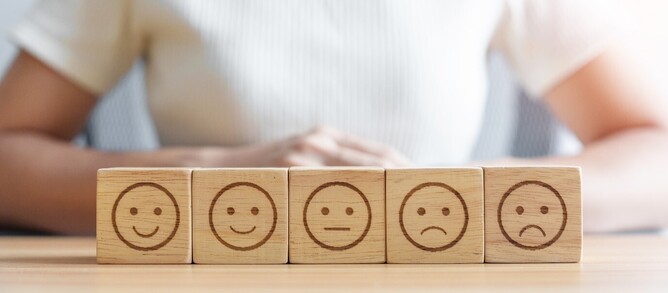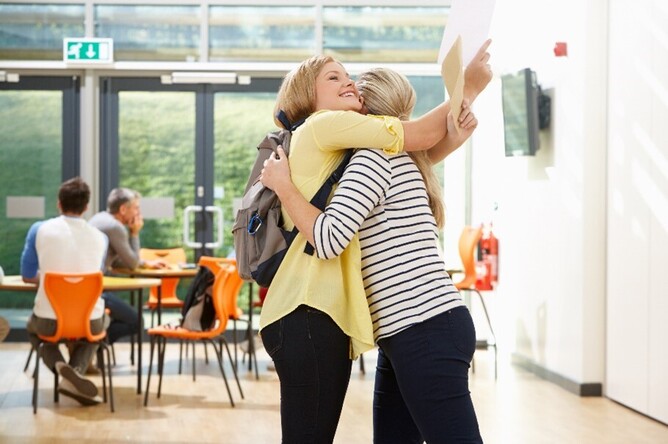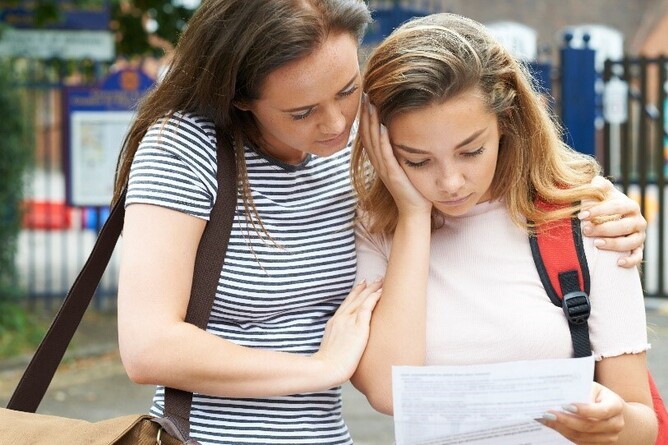Thoughts for Young People in Today’s World
I don’t think there are many of us over the age of 30 who don’t wish we were younger? However also when asked most of us would also not like to go back to being a teenager again. Being a young person in today’s society comes with its own set of challenges and joys.
On one hand, young people have access to more opportunities and resources than ever before, such as technology, education, and diverse career paths. However, on the other hand, young people also face unique challenges such as mental health issues, economic insecurity, and social inequality.
One of the biggest challenges for young people today is the pressure to succeed academically and professionally.
The competition for jobs and higher education is fierce, and young people often feel the need to excel in order to have a successful future. This pressure can lead to stress and anxiety, which can negatively impact mental health. Another challenge for young people is economic insecurity.
Many young people are faced with high levels of student debt, and the job market is very competitive. This makes it difficult to get stable employment. This can lead to financial stress and anxiety, making it difficult for young people to plan for their future. In addition to these challenges, young people also face social inequality, including discrimination based on race, gender, sexual orientation, and socioeconomic status. This can make it difficult for young people to feel like they belong and can have a negative impact on their mental health.
Despite these challenges, being a young person in today’s society also comes with its own set of joys.
Young people have access to more information and resources than ever before, which allows them to be more informed and connected with the world around them. Additionally, the internet and social media have made it easier for young people to connect with like-minded individuals and find support.
Another joy of being a young person today is the ability to make a difference in the world.
Young people are becoming more politically and socially active, and they have the power to make real change in their communities and society as a whole.
In conclusion, being a young person in today’s society comes with its own set of challenges and joys. Young people face pressure to succeed academically and professionally, economic insecurity, and social inequality.
However, they also have access to more information and resources than ever before, have the ability to connect with like-minded individuals and make a difference in the world. It is important for society to support and empower young people to navigate these challenges and to empower them to be agents of change.
Improving your child’s mental health
As a parent or carer, it’s natural to want to do everything in your power to ensure your child’s emotional wellbeing. However, it can be challenging to know where to start. Here are a few things you can do to improve your child’s emotional wellbeing.
First and foremost, it’s important to establish open and honest communication with your child. Encourage them to express their thoughts, feelings, and listen actively to what they have to say.
This can help to build trust and understanding between you and your child, and can also provide insight into any issues they may be struggling with.
Another way to improve your child’s emotional wellbeing is to provide them with a sense of structure and routine. Establishing regular bedtimes, mealtimes, and activity schedules can help to provide a sense of stability and predictability for your child. This can help to reduce feelings of anxiety and uncertainty.
It’s also important to encourage your child to engage in regular physical activity.
Exercise has been found to have a positive impact on mental health and emotional wellbeing, and can help to reduce feelings of stress and anxiety.
Additionally, it’s important to teach your child healthy coping mechanisms to deal with stress and difficult emotions. These can include deep breathing exercises, journaling, and other mindfulness practices.
Finally, it’s important to set a good example by taking care of your own emotional wellbeing, your child will look to you as a role model, and by taking care of yourself, you can help to teach them the importance of self-care.
What are you up too in the holidays?
Off to sunnier places or just hanging around at home, maybe you have found something fabulous to do locally. Let us know what you are up to and hopefully we can include it in our next newsletter?
Email your responses to hello@teenagementalhealth.co.uk
Fun Fact:
Prevention doesn’t work. It is impossible to prevent mental illnesses.
Fact: Prevention of mental, emotional, and behavioural disorders focuses on addressing known risk factors such as exposure to trauma that can affect the chances that children, youth, and young adults will develop mental health problems.
Promoting the social-emotional well-being of children and youth leads to:
Higher overall productivity
Better educational outcomes
Lower crime rates
Stronger economies
Lower health care costs
Improved quality of life
Increased lifespan
Improved family life
Top Tip
Spend some time with a furry friend. Time with animals lowers the stress hormone – cortisol and boosts oxytocin – which stimulates feelings of happiness. If you don’t have a pet, hang out with a friend who does, volunteer at a shelter or visit a petting zoo.
As you can see Womble loves getting out to see and meet people, and he loves how just being himself helps people feel better on his journey to being a therapy dog.
You can say anything to a furry friend, you can trust they won’t judge or tell anyone what you said too! Great keepers of secrets and givers of unconditional love.
Going Back to School
Get Your Child Ready for Back to School with These Tips and Tricks!
As the summer comes to a close, it’;s time to start thinking about getting your child ready to go back to school.
Whether your child is starting kindergarten or heading off to college, these tips and tricks will help ensure that they are prepared for the upcoming academic year.
1. Get Organised: One of the best ways to get your child ready for school is to get them organised. This means creating a schedule for homework and studying, as well as a designated space for school supplies and books.
2. Set Goals: Help your child set goals for the upcoming year.
This can include academic goals, such as earning a certain grade or taking on a leadership role in a club, as well as personal goals, like making new friends or trying out for a sports team.
3. Shop for Supplies: Make sure your child has all the necessary school supplies. This includes a backpack, notebooks, pens, pencils, and any other materials required for their classes.
4. Get Back into a Routine: As the summer comes to an end, it’s important to start getting your child back into a routine. This means setting regular bedtimes and wake-up times, as well as establishing a routine for homework and studying.
5. Communicate with Teachers: If your child is starting a new school, be sure to communicate with their teachers.
This can include setting up a meeting before school starts or reaching out via email to introduce yourself and ask any questions you may have.
6. Encourage Independence: Encourage your child to take responsibility for their own learning and organisation. This can include setting reminders, managing their own schedule, and being responsible for their own supplies.
7. Review the Curriculum: If your child is entering a new grade level, review the curriculum with them. This can include looking over the subjects they will be studying and discussing any areas of concern.
8. Establish a Support System: Establish a support system for your child. This can include family, friends, teachers, and school counsellors.
9. Get a Good Night’s Sleep: Ensure your child is getting a good night’s sleep. The American Academy of Sleep Medicine recommends that school-age children should sleep between 9 - 11 hours per night.
10. Be positive and Encourage: Lastly, be positive and encouraging. Let your child know that you believe in them and are proud of their accomplishments.
Getting your child ready for back to school can be a stressful time. With these tips and tricks, you can help make sure that they are ready for the academic year ahead. Good luck and have a great school year!
Results Day
Navigating Results Day in the UK
In the UK this year, A-level and AS level results day is set for Thursday, August 17th, while GCSE results are scheduled to be released on Thursday, August 24th.
Past generations of students may fondly recall the nerves and excitement of sitting exams, gathered in big school halls with their friends. They cherish the buzz of finishing exams, meeting loved ones afterward to celebrate and discuss their performance.
Encouraging conversations with teachers and emotional support from school staff were memorable aspects of the experience. Then, results day—a hot August day—arriving with friends, nervously opening result envelopes, sharing joys, and consoling each other through successes and disappointments.
The Covid-19 pandemic severely impacted education, with students missing months of face-to-face schooling and exams being cancelled. Results were determined based on predicted grades, causing confusion and feelings of being cheated for many students.
The lack of the traditional rite of passage felt disheartening, especially for those now moving on to A-levels after experiencing GCSEs. Some young adults even now, may be going through strong feelings about results days at this time of year due to COVID related experiences.
Now we appear to be back to what might be considered normality, exams and results day are back to what they once were. The pandemic’s lingering effects have continued as many students faced challenges reintegration into education and social norms due important stages of their education still.
Anxiety, grief, helplessness, and uncertainty have been prevalent among young people. The demand for mental health support has overwhelmed various services, leaving some students without the necessary care and support. As a result, results day can be an overwhelming and daunting experience for many students still.
Tips for Coping with Results Day:
Understand that anxiety is normal and talk about your feelings with a trusted friend, relative, or teacher. If it becomes too overwhelming, therapists and counsellors are certainly helpful options for support.
Have a Plan B and remember that your results do not define your worth or future.
Avoid feeling pressured to share your results and take your time to process them. This is your personal achievement and it’s okay to digest them in your own time.
Celebrate your achievements, no matter the outcome, and be kind to yourself. Celebrate in your own way, whether big or small, and acknowledge your personal growth.
Avoid unhealthy coping habits and reach out for help if needed.
Remember that future opportunities lie ahead, and grades do not solely determine your success. Your worth is not defined by exam grades; some of the most successful people faced failures and challenges.
Embrace the journey of life, as exams are just a small part of a larger puzzle. Be optimistic about your future and believe in your ability to grow and succeed from this point no matter what.
As a parent, carer, or student awaiting results, remember to focus on what has been achieved, what was accomplished, and the challenges overcome throughout the education journey.
This is just one of many steps ahead. It is not an irreversible defining moment, even though it may feel that way. Be proud of your achievements, and if results didn’t meet your expectations, be kind to yourself.
On results day, try to ignore the “if’s” and the “you should have’s” and embrace the moment with positivity.
Remember, if you need support, consider speaking with trusted adults, friends, or family members. Seeking professional help from accredited counsellors and therapists can also be beneficial during challenging times.






